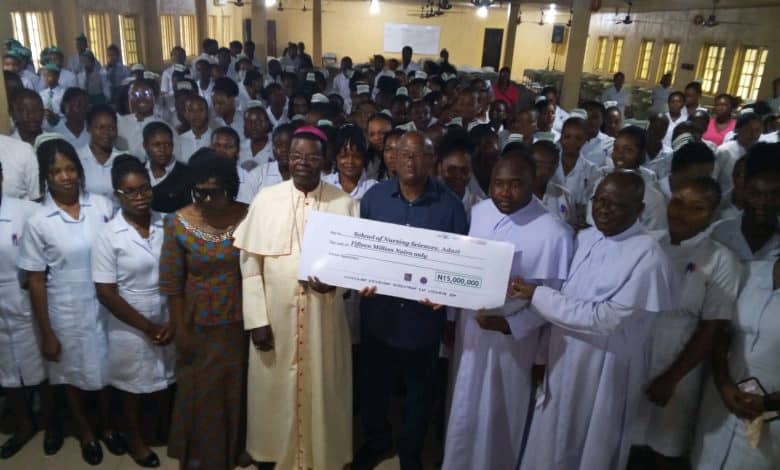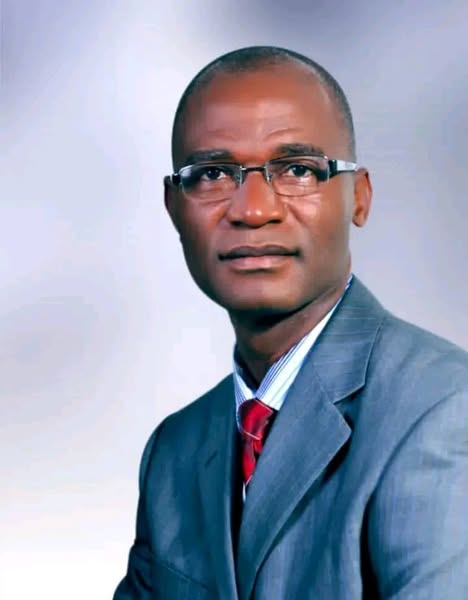Alfred Ajayi
Amid a historic turning point for reproductive rights, global leaders, researchers, and advocates will converge in Bogotá for the Seventh International Conference on Family Planning (ICFP 2025).
ICFP is the world’s largest convening on sexual and reproductive health and rights (SRHR). The conference, taking place November 3–6, 2025, at the Ágora Convention Center, will serve as a global platform to transform evidence into action amid mounting political and financial pressures.
Holding for the first time in Latin America, ICFP 2025 will feature over 2,000 scientific and research presentations, 800 organizations from more than 120 countries, and 50+ ministers and parliamentarians alongside 15+ UN and multilateral agencies and 60+ research institutions.
Through a hybrid format, frontline voices will connect virtually to elevate community-led solutions and highlight how innovation, policy collaboration, and rights-based approaches can accelerate global progress.
Historic moment for rights and resolve
This year’s gathering comes as reproductive health systems face both opportunity and crisis — with over 250 million women worldwide lacking access to modern contraception, according to the United Nations Population Fund (UNFPA), and a projected US $1.5 billion shortfall in reproductive-health commodity financing by 2030 in the poorest countries.
Two emergency side summits will tackle these challenges head-on: one on the global reproductive-health financing gap, and another on the shifting political climate surrounding SRHR.
New multi-country reports on abortion access, adolescent health, and sustainable financing will also debut, with governments expected to announce new commitments toward the 2030 targets.

“Latin America has shown that progress is possible, even in the toughest contexts. We’re not just responding to global challenges — we’re shaping the solutions,” said Marta Royo, Executive Director of Profamilia.
“From innovative models of care to bold new partnerships and financing approaches, our region is proving that rights can advance through resilience, creativity, and collective action.”
Hosted by the William H. Gates Sr. Institute for Population and Reproductive Health at Johns Hopkins Bloomberg School of Public Health, in partnership with the Government of Colombia, Profamilia, and Fundación Valle del Lili, ICFP 2025 aims to amplify evidence-based advocacy and strengthen the link between policy, funding, and community impact.
“For sixty years, Profamilia has proven that advancing sexual and reproductive rights is not only necessary: it’s possible, and it’s transformative. Hosting ICFP 2025 is both a recognition of Latin America’s progress and a call to keep pushing for health, equity, and wellbeing worldwide,” Royo added.
Slowing progress
Global progress toward universal access to family planning has slowed in recent years as millions of women still lack modern contraceptive options or the freedom to use them, while political backlash continues to challenge established rights.
Ms. Diene Keita, Executive Director, UNFPA noted, “Contraception saves lives. It’s the front line of defense against maternal mortality. We cannot afford complacency — women and girls are counting on us.
“Let’s use the evidence from Bogotá to shape policies that uphold their rights and enable them to forge a healthy, prosperous future,” said.
ICFP 2025 will host the largest ministerial delegation in the event’s history, welcoming leaders from over 50 governments, parliamentarians, and representatives from multilateral agencies, foundations, universities, civil society, and the private sector.
Together, they will explore how national reforms can be scaled, financed, and sustained amid evolving aid landscapes and political shifts.
Science driving equity
Under the theme “Equity Through Action: Advancing Sexual and Reproductive Health and Rights for All,” the conference will showcase how scientific evidence and innovation can fuel equitable access to care and advance the Sustainable Development Goals.
“Evidence must outpace ideology,” said Dr. Philip Anglewicz, Director of the William H. Gates Sr. Institute and Chair of the ICFP 2025 International Steering Committee.
“Bogotá will be where science, community, and political leadership align to protect rights and rebuild momentum.”
Ahead of the all-important meeting are key research highlights including studies from Kenya, Malawi, and Ethiopia showing how digital tools, AI platforms, and drone delivery systems are strengthening contraceptive supply chains and reaching remote communities.
New analyses from Ghana, Kenya, and global partners demonstrate the economic returns of domestic investment in family planning and underscore the urgency of closing the US $1.5 billion commodity-financing gap.
From Colombia’s MIA strategy for self-managed abortion to nurse-led models in the Philippines, rights-based care and workforce empowerment are transforming services even in resource-constrained settings.
Also, multi-country research on male contraception highlights shifting attitudes, safety evidence, and policy pathways for men’s and gender-diverse participation in family planning.
Youth-led and disability-inclusive media initiatives in Nepal and Nigeria, such as the Deaf Youth Podcast, are reshaping SRHR communication and demand generation.
These findings will anchor policy discussions throughout the ministerial and multilateral sessions, reinforcing how investment in reproductive health drives public health, gender equality, and economic growth.
Community voices rewriting global narrative
At the heart of ICFP 2025 are the people who make change happen — health workers, youth advocates, journalists, artists, and grassroots organizers.
Through the ICFP LIVE Stage and the Family Planning News Network (FPNN), these voices will bring the human stories behind the statistics to the forefront.
ICFP LIVE will stream over 30 hours of bilingual programming (English and Spanish) to global audiences, ensuring that community-driven insights reach policymakers and practitioners everywhere.
With less than five years until 2030, ICFP 2025 seeks to chart a clear course from evidence to action — ensuring that every person, everywhere, can exercise their reproductive rights freely and without fear or barriers.





